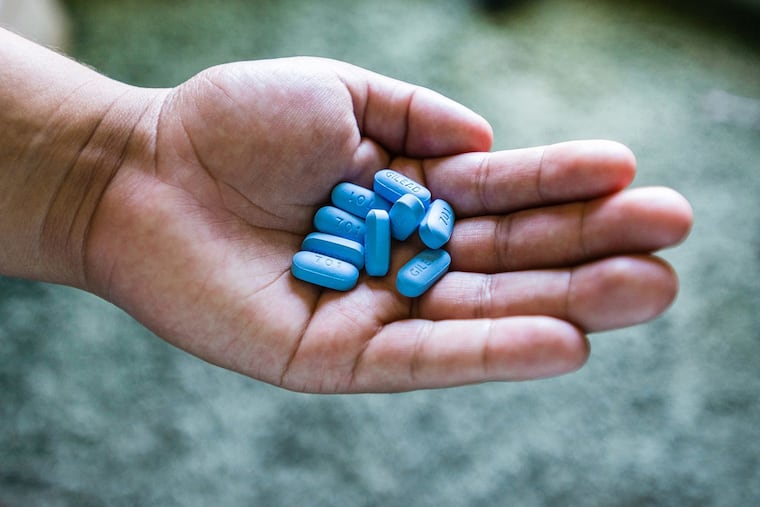Raising the cost of HIV prevention medication from $0 to $10 could lead to more unfilled prescriptions, study finds
PrEP is free for most people with private insurance, but a lawsuit is threatening no-cost coverage.

Raising the price patients pay for an HIV prevention medication could reduce the number of people who fill their prescriptions and undercut efforts to curb the spread of HIV/AIDS.
Even a small increase in patients’ cost, from $0 to $10, could double the percentage of people who never pick up their prescription for HIV pre-exposure prophylaxis, or PrEP, according to a new study by researchers at the University of Pennsylvania, Johns Hopkins University, and Brown University.
PrEP reduces the risk of getting HIV from sex by about 99% and reduces the risk of getting HIV from intravenous drug use by 75%. It is a key part of public health efforts to reduce HIV infection rates.
The oral medication has been free for most people with private insurance and Medicaid since 2021, under federal rules that require plans to fully cover preventive care that is considered highly effective. New Medicare rules that cap out-of-pocket spending have made the medication more affordable for seniors and people with disabilities.
Programs like Einstein Medical Center’s partnership with Philadelphia Department of Health to offer PrEP via telehealth have further expanded access.
» READ MORE: A new Philly HIV prevention program will make PrEP medication available for free — with no in-person visits
But a lawsuit filed in Texas last year is challenging whether insurers should be required to cover PrEP and other preventive services at no cost.
The new study is intended to show how striking down the requirement and raising out-of-pocket costs for PrEP could “upend the progress that has been made towards ending the HIV/AIDS epidemic in the United States,” said Jalpa Doshi, a professor of medicine at Penn and one of the study’s authors.
People who did not fill their PrEP prescription were up to three times as likely to be infected with HIV in the following year, compared to those who did fill their prescription, according to the study, which was published in the January issue of Health Affairs.
Cost is a barrier to PrEP for some
Researchers used a private, nationally representative medical claims database to study how cost affected people’s access to PrEP. Their findings are based on 50,000 cases between 2015 and 2019 in which a patient was prescribed PrEP for the first time and the prescription was approved by their insurance.
They found that roughly a third of patients never picked up their prescription after learning they would have to pay between $101 and $500.
By contrast, when patients had to pay between $1 and $10, about 11% of prescriptions were abandoned. Around 5% of people never picked up their prescription when it was free.
“We know there’s an issue in America with people being able to afford medications. In the case of HIV, it can start with whether they can get medication to prevent infection,” said Lorraine T. Dean, an associate professor of epidemiology at Johns Hopkins Bloomberg School of Public Health and a co-author of the study.
The findings, she said, demonstrate why PrEP should stay “not just cheap, but free.”
Lawsuit challenges ACA preventive care coverage
Dean and Joshi said they are concerned the Texas lawsuit, brought by six individuals and Christian-owned businesses, could hinder access to PrEP.
The lawsuit, Braidwood Management Inc. v. Becerra, argues that the Affordable Care Act’s requirement that insurers cover preventive services at no cost to patients is unconstitutional. It also argues that requiring coverage of PrEP violates Braidwood Management’s religious rights.
In March, a Northern Texas district court judge ruled that the requirement was unconstitutional and a violation of religious rights. The federal government appealed the decision, and the 5th Circuit Court of Appeals issued an administrative stay, meaning that insurers must continue covering preventive services at no cost while the case moves through the court system.